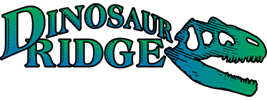Deep Time Detour
A Prehistoric Colorado Visitor Experience (Opening May 2026)
Help transform a humble building at the gateway to Red Rocks into a world-class destination
So Close to Reaching the Goal!
Can You Help Close the Gap by Mid-April?
- Campaign Progress – $640,700 Raised So Far 85%
Help Us Reach the Funding Goal of $750,000
Your donation will help fund the creation of world-class exhibits for the Martin G. Lockley Discovery Center.
Everyone who donates $500 by or more by April 25 will be recognized on the museum’s Donor Wall!
The Opportunity
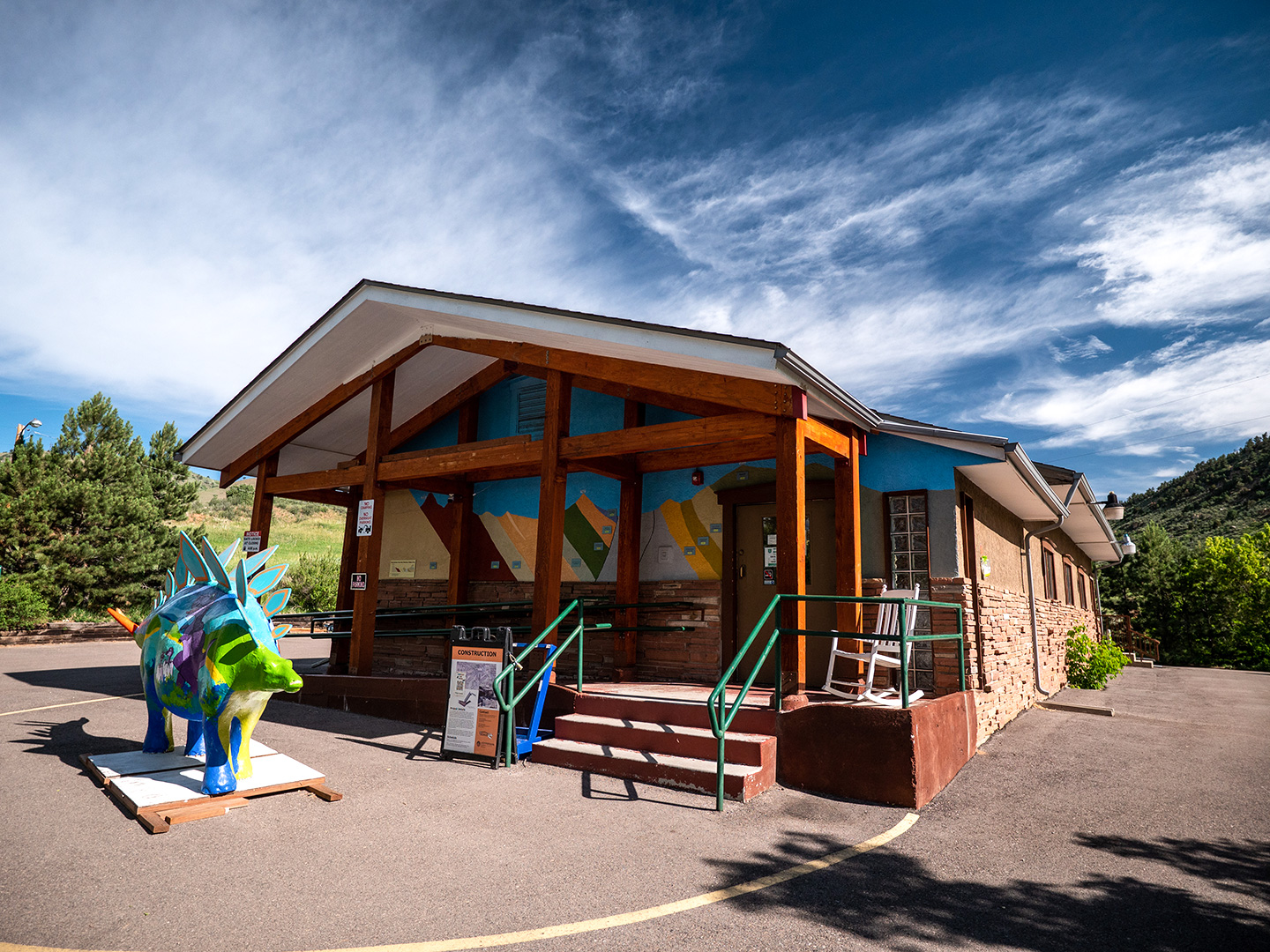
In 2024, Friends of Dinosaur Ridge renamed its building located just inside Entrance 1 to Red Rocks Park & Amphitheatre the Martin G. Lockley Discovery Center in honor of the pioneering paleontologist and co-founder of the organization.
This charming 1960s-era building sits at the gateway to Colorado’s #1 tourist attraction; perfectly positioned to expand our educational reach. With thousands of Red Rocks visitors driving by almost daily, the potential to share an impactful, prehistoric-themed experience is too good to pass up. But to realize this vision, the building’s interior needs renovation and modern exhibits featuring interactive designs to truly capitalize on the iconic area’s unmatched natural history setting.

Why Now?
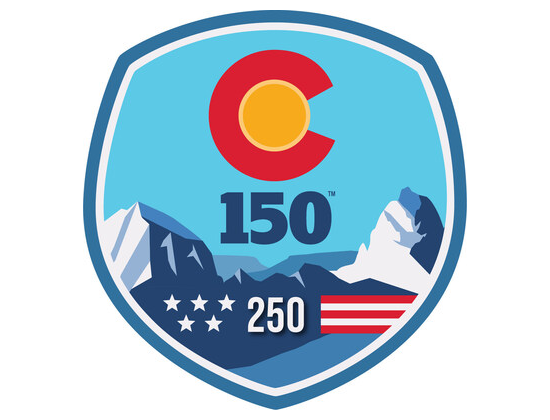
1876-2026 This Historic Anniversary Calls For Celebration!
The 150th anniversary of Colorado statehood is right around the corner. Coincidentally, in 1876 Professor Arthur Lakes happened upon monumental dinosaur fossils on the Dakota Hogback (now called Dinosaur Ridge), including bones that would name the Stegosaurus, now Colorado’s state fossil.

A New Transit Link Brings Visitors Straight to the Door
Memorial Day weekend 2026 is when Denver’s RTD public transit system is planning to open a new bus stop at the Lockley Discovery Center’s driveway. This new route will bring riders from a station in Golden and then continue on into Morrison. We want to show them something really special when they arrive!

The Perfect Time and Place to Invest
Now is the time to invest in this perfectly situated building and get in on Colorado’s sesquicentennial celebration! It’s a prime opportunity to raise awareness about Colorado’s stunning geological history, and teach visitors with surprising state-of-the-art exhibits designed and created by TRX Dinosaurs.
We are proud to partner with the Denver teams of MHK Architecture and BNBuilders on the exciting remodel of the Martin G. Lockley Discovery Center. MHK generously created our new floorplans at no cost, and BNBuilders is bringing the vision to life by providing construction services nearly at cost. Their expertise and generosity are helping us keep expenses low while creating a space that will welcome visitors into Colorado’s prehistoric past in an inspiring, meaningful way. We are deeply grateful for these partnerships and wholeheartedly recommend both firms to other organizations seeking thoughtful, community-minded collaborators.

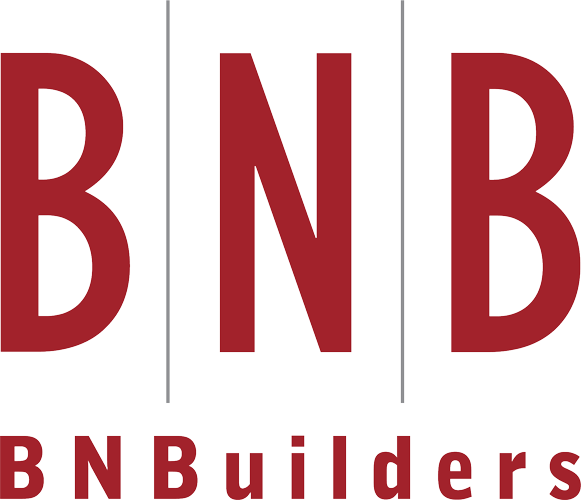
Friends of Dinosaur Ridge is immensely grateful to philanthropic organizations that are granting financial support to the Deep Time Detour project. Their contributions are not only helping cover costs but also signal alignment with the educational goals of this new exhibit hall. We are honored to be entrusted with funds and greatly appreciate the show of confidence from these excellent foundations.

Why Does This Project Matter?
The Vision
Interactive & Unforgettable
The Concept
A Deep Time Detour of the Place We Now Call Colorado
Colorado’s geological story is dynamic and surprising! From tropical to Ice Age landscapes, constant change has shaped and reshaped the land and its plant and animal life over hundreds of millions of years. This new exhibit hall will showcase powerful transformations through the lenses of geology and paleontology, telling unique stories from around the state based on the fossil record as interpreted by scientists and paleo artists.

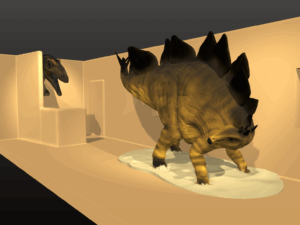
The Goal
Designed for Everyone
This experience is intended to engage every visitor. Youngsters who can’t yet read, non-English speakers, those with no interest in natural history, and fossil fanatics alike! These exhibits will spark curiosity and connection. From casual drop-ins to prehistoric Earth enthusiasts, all who enter will leave surprised, delighted, and inspired to share what they’ve experienced.
The Exhibits
Six Exhibit Zones to Explore
Stroll through six immersive exhbits, each showcasing a chapter of Colorado’s ancient story. With lifelike replicas and artistic installations by TRX Dinosaurs, informed by our own team of experts, every detail is crafted to invite interaction and discovery. Visitors will encounter:
- Extinct lepidodendron trees that once thrived where Red Rocks now rule
- Colorado’s state fossil, the Stegosaurus, starring in striking scenes with other Jurassic creatures
- A monstrous marine reptile hunting in the Ancient Seaway
- Beachfront property and Dinosaur Ridge tracks, predators, and prey
- Cretaceous megafauna from Golden’s Triceratops Trail
- Life that emerged in Colorado After the Asteroid that ended the Age of Dinosaurs
Touchable displays and surrounding wall art will create an immersive experience for visitors. Interpretive signage will be informative and aimed at evoking exclamations! From hands-on displays to share-worthy photo ops, every step is designed to fire up the imagination.
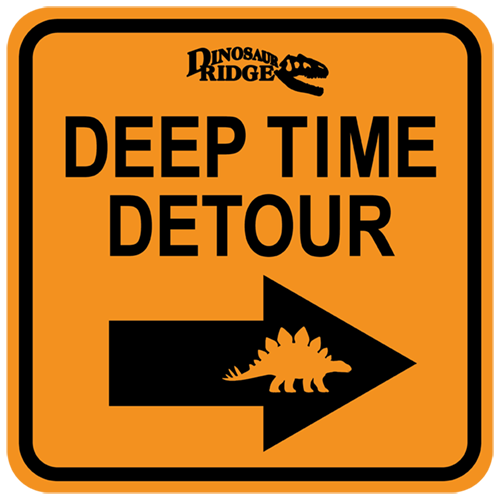
Be Part of Colorado’s 150th Anniversary of Statehood Celebration (Sesquicentennial)
And support education centered on Colorado’s prehistoric natural history at the same time!
Take a Deep Time Detour Into Colorado’s Rich Prehistoric Past
Stroll through six exhibit zones to encounter the Stegosaurus, Ceratosaurus, Deinonychosaur, Triceratops, Tylosaurus and more in their ancient settings. With lifelike replicas, hands-on displays, and photo ops throughout, this immersive experience will encourage visitiors of all ages to contemplate the ever-changing status of life on Earth.
Entrance
Enter the front door of the Martin G. Lockley Discovery Center and feel an immediate connection between the present and the distant past. A sweeping mural of the modern-day Front Range, with the Dakota Hogback of Dinosaur Ridge and the dramatic outcrops of Red Rocks bathed in sunlight will serve as a reminder that the prehistoric past is still visible all around us.
An artfully designed donor acknowledgement wall celebrating the community that brought the Center’s exhibits to life will also serve as a means of bringing context to the surrounding geology. This immersive space invites you to pause, take in the beauty of the present, and get ready to take a Deep Time Detour through ancient landscapes where stunning plants and animals once lived.
ZONE 1: RED ROCKS
Red Rocks Park, 300 MYA
Red Rocks Amphitheatre is world-famous for its stunning geology, but what’s the story behind these iconic rocks? Stroll through ancient plants: lepidodendrons (aka “scale trees”) known for their unique bark of repeating diamond shapes. This lush grove forms a portal into Colorado’s deep past, inviting visitors to touch, explore, and imagine life 300 million years ago, long before dinosaurs.
Back then, Colorado was warm and swampy. Six-foot-long millipedes populated the undergrowth, dragonflies with two-foot wingspans buzzed overhead, and early amphibians inhabited the wetlands. Red Rocks’ first rock stars made their own kind of music!
ZONE 2: JURASSIC
Quarry 5 (Bone Bed), 150 MYA
The world’s first Stegosaurus fossils were unearthed on Dinosaur Ridge in 1876. This part of Jurassic Colorado featured meandering stream channels and floodplains that built the Morrison Formation. Layers of sand, silt, and mud preserved fossils for 150 million years. In this zone visitors come face-to-face with Stegosaurus, Colorado’s state fossil. A full-size sub-adult, touchable reconstruction posed next to a Stegosaurus skeleton, letting visitors compare life and fossil side-by-side while realizing the first of these epic creatures was found less than a mile from this very spot!
Meanwhile, a life-sized Ceratosaurus looms nearby, representing one of the rare predators of this ancient ecosystem.
ZONE 3: DINOSAUR RIDGE
Beach Day ~100 MYA
Did you know Colorado once had a coastline? Around 100 million years ago, this region sat at the edge of a vast inland sea. The famous Dinosaur Ridge tracksite preserves this prehistoric shoreline, capturing the Cretaceous moment when dinosaurs walked across tidal flats and left their footprints in soft, wet sand.
This exhibit highlights rare tracks made by deinonychosaurs, raptor-like predators, and horseshoe crabs, offering a glimpse into an ancient interaction between hunter and prey. It also celebrates the science of paleoichnology, the study of fossilized tracks and traces, which helps scientists understand how extinct animals moved, hunted, and behaved. Dinosaur Ridge is internationally known for this field of research, thanks to co-founder and legendary track expert Dr. Martin Lockley, for whom the building is named. This immersive corner of the exhibit will serve as a call to action: head up to the Main Tracksite to see the real fossil footprints that made Dinosaur Ridge world-famous.
ZONE 4: ANCIENT SEAWAY
85 MYA
Welcome to the bottom of the sea! During this time, a warm, shallow ocean split North America in half, and Colorado was underwater. At the top of the food chain swam the mosasaurs, giant marine reptiles that could grow more than 50 feet long! This zone will feature something never seen in a museum: a juvenile Tylosaurus (one of the largest types of mosasaurs) mounted on a motorized ceiling track that allows it to “swim” overhead as if cruising through ancient waters.
Beneath the mosasaur, a hands-on display will dive deeper into the story of the seaway, featuring touchable replicas, interactive elements, and opportunities to explore the ammonites, ancient fishes, and other bizarre creatures that once swam where we now walk.
ZONE 5: TRICERATOPS TRAIL
66 MYA
By the end of the Age of Dinosaurs, the sea had retreated, and Colorado had transformed into a humid, swampy landscape filled with tall palm trees and dense vegetation. Iconic dinosaurs like Triceratops, T. rex, and Edmontosaurus roamed what is now Golden, leaving behind footprints that are still visible along Triceratops Trail today.
This exhibit zone brings those ancient giants to life with dramatic, immersive displays. A life-sized Triceratops will be bursting through the wall, touchable and up close, while a motion-activated duck-billed dinosaur guards a nest of babies that move as they hatch. A sweeping mural sets the scene with prehistoric flora just as the incoming asteroid that marked the end of the dinosaurs approaches.
ZONE 6: AFTER THE ASTEROID
From Giant Sequoias to the Pleistocene, 34 MYA-40,000 years ago
In this final exhibit, the dinosaurs are long gone. Dramatically different life after the asteroid, from giant redwood forests to beasts of the Ice Age, now dominates. Murals transport visitors to the rich paleoecosystems of what is now Colorado’s Florissant National Monument, where ancient sequoias once stood and giant rhino-relatives roamed. A reconstructed Megacerops head overlooking delicate fossilized insects and leaves preserved by ancient ashfalls and floods will leave visitors imagining a younger, wilder planet Earth.
Finally, we shift to the Ice Age where a dramatic replica of a long-horned bison from the Pleistocene commands the scene. Its massive wall-mounted head will inform visitors about Colorado’s rich fossil sites like Snowmass Village, where the bones of now extinct megafauna were recently uncovered in staggering numbers.
What Will it Cost to Bring This Vision to Life?
Estimated Costs
Funding Progress
More Than Dinosaurs
This exhibit experience goes far beyond fossils. It’s designed to inspire imaginations, build community pride, honor a scientific legacy, and make prehistoric history accessible to everyone. Your belief in these goals will create an instant classic for countless visitors of all ages!
Inspiring Wonder for Every Visitor
This isn’t just an exhibit. It’s an experience designed to spark wonder, curiosity, and connection. From young children with big imaginations to lifelong dinosaur fans, non-English speakers, and even those who think natural history isn’t their thing, everyone will find something here to engage, surprise, and enlighten them.
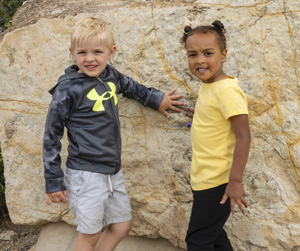
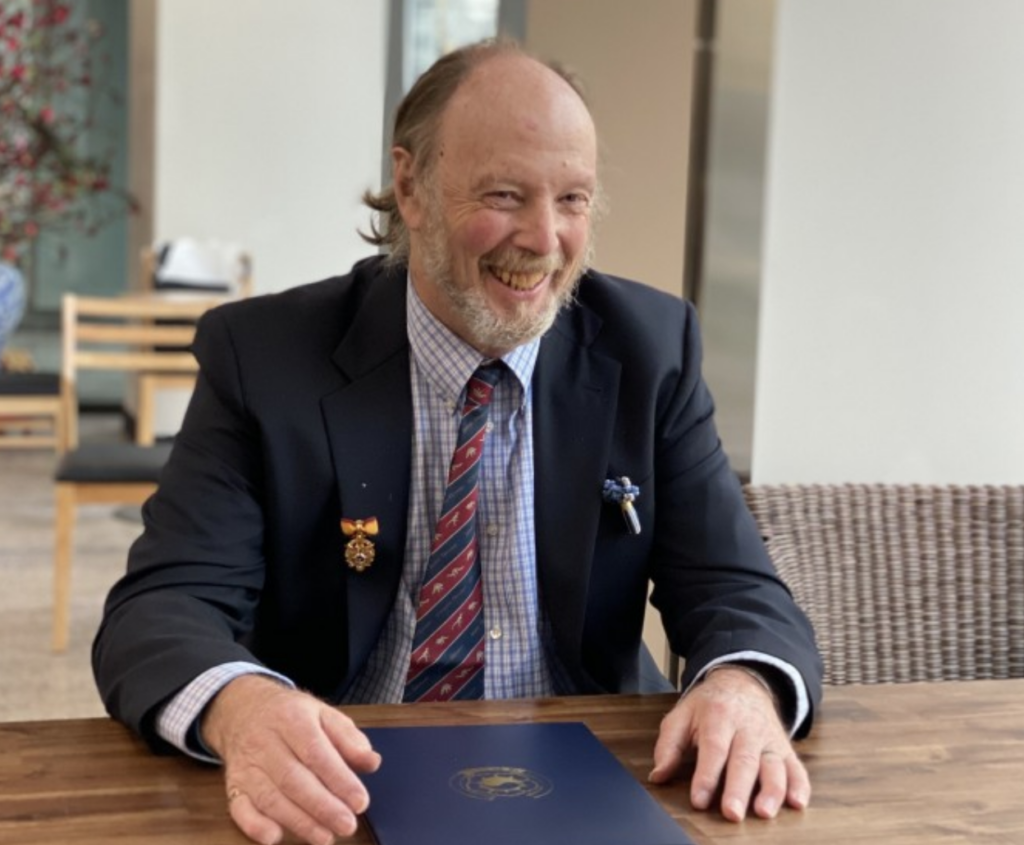
Honoring Legacy and Building Community
By transforming this space, we honor Dr. Martin Lockley’s legacy and create a place where science feels approachable, discovery feels personal, and history comes to life. Rooted in accessibility and powered by community pride, this exhibit will share Colorado’s prehistoric story in a way that’s built to last.
As Martin wrote in one of his book dedications, “To all fellow travelers on the eternal trail, especially family, friends, colleagues, students, visitors, and a potential new generation of unruly dinosaur trackers: May the road be smooth and may you see farther down the trail than I ever will.”
Help Us Make History You Can Walk Through
Be Part of the Legacy
Your gift will help create immersive exhibits, hands-on learning, and a place where hundreds of millions of years in Earth history will be brought back in stunning fashion!
The transformation of the Martin G. Lockley Discovery Center into a one-of-a-kind museum experience showcasing Colorado’s prehistoric past is like no other investment you’ve ever made. We thank you for the support and show of support for this ambitious project! You can make this happen!
